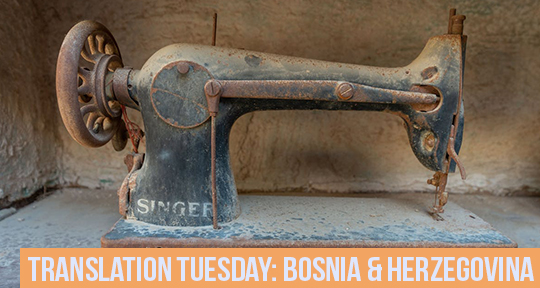Too often, stories about war sensationalize the trauma it inflicts—the dead reduced to numbers, the survivors to lists of symptoms. Not so the work of Bosnian writer Nirha Efendić, whose autobiographical novel Buckle, translated by Ellen Elias-Bursać, offers a compelling vision of what such narratives often omit: the shunning of refugees, the punishments of a post-war economy, the daily psychic grind of living as an undesired and unforeseen survivor. The nature of the narrative is best described by Bosnian author Faruk Šehić, as “. . . a documentary-like, autobiographical work of prose with elements of fiction”—the early chapters narrated by various members of the protagonist Nirha’s family, the later narrated by Nirha alone, following the death of her father and brother in the Srebrenica genocide. The excerpts below are taken from the middle of the novel, following Nirha’s attempts to find her footing after she is finally separated from her father and brother. Of these passages, Elias-Bursać writes: “The challenge in working on this translation was to convey the nuanced sense of the narrator’s grace, strength and gentility as she speaks of such wrenching, tragic subjects.” Read on—
All morning long, Mama and I worked on stitching sturdy yellow cloth for rucksacks. Mama had a Singer sewing machine that my grandfather bought her while she was still in elementary school so she could learn the trade over summer vacation.
Now she was determined to teach me how to sew.
She thought it might come in handy at some point. We knew we had to stuff our whole past into the backpacks, at least the most important parts of it, and set off into the unknown.
This wasn’t easy. There were shells raining down all around us.

